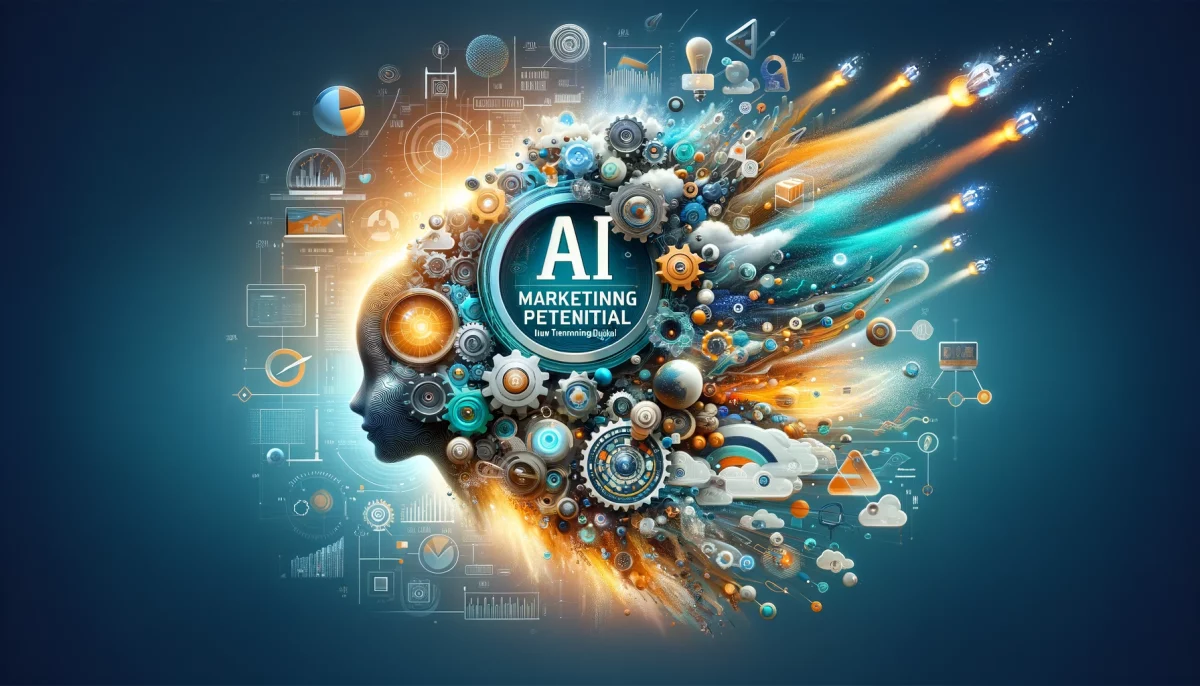Imagine a world where your marketing strategies are data-driven and self-evolving. A world where your campaigns adapt in real time, learning from every customer interaction to deliver increasingly personalized experiences. This is not a glimpse into some distant future; it’s the reality that Artificial Intelligence (AI) is creating for digital marketing today.
Understanding how AI transforms digital marketing is not just a curiosity but a necessity. In an age where consumer expectations are sky-high and the digital landscape is more competitive than ever, AI offers the tools to break through the noise and connect with your audience meaningfully.
The Rise of AI in Marketing
Historical Context
Artificial Intelligence is not new; it has existed since the mid-20th century. However, its application in marketing is a relatively recent phenomenon. Initially, AI was primarily used in data analysis and customer segmentation. But as technology advanced, marketers realized its potential for much more—such as automating tasks, personalizing content, and predicting consumer behaviour.
Current Trends
Today, AI is at the forefront of marketing innovation. According to a report by Adobe, 41% of marketers are already using AI in some form, and this number is expected to grow exponentially in the coming years. From chatbots that handle customer service inquiries to algorithms that optimize ad spend, AI is making its presence felt across all aspects of digital marketing.
Understanding AI Technologies
Machine Learning
Machine learning, a subset of AI, has become a cornerstone in modern marketing strategies. It enables systems to learn from data, identify patterns, and make decisions with minimal human intervention. For marketers, this means more accurate targeting, better ROI, and the ability to adapt real-time strategies based on consumer behaviour.
Natural Language Processing
Natural Language Processing (NLP) is another AI technology that’s making waves in the marketing world. It powers everything from voice search to sentiment analysis, allowing marketers to understand not just what consumers are saying, but also how they feel. This emotional intelligence is invaluable when crafting messages that resonate with your audience.
Chatbots
Chatbots have come a long way from simple scripted responses. Today’s AI-powered chatbots can understand context, answer complex queries, and even upsell products, providing a level of customer service that was previously only achievable with human agents.
Data-Driven Decision Making
Predictive Analytics
Predictive analytics use historical data and machine learning algorithms to forecast future events. In marketing, this can mean predicting which leads are most likely to convert or which customers risk churning. These insights enable marketers to take proactive steps, optimizing campaigns for maximum effectiveness.
Customer Segmentation
AI takes customer segmentation to the next level by analyzing multiple data points, including behavioural patterns, social interactions, and purchase history. This allows for the creation of highly targeted campaigns that speak directly to the individual needs and preferences of each customer segment.
Personalization and Customer Experience
Dynamic Content
One of the most impactful ways AI transforms digital marketing is through dynamic content. Algorithms analyze user behaviour, preferences, and past interactions to serve personalized content in real time. Whether it’s product recommendations on an e-commerce site or personalized email content, dynamic content increases engagement and conversion rates.
Customer Journey Mapping
AI can analyze the myriad touchpoints that a customer interacts with across various channels. This data is then used to create a “customer journey map,” which helps marketers understand the paths that consumers take from awareness to conversion. With this knowledge, marketers can optimize each touchpoint to improve the customer experience.
Automating Marketing Operations
Email Marketing
AI algorithms can analyze vast amounts of data to determine the best times to send emails, the most effective subject lines, and even the type of content that will engage different segments of your audience. This level of automation allows marketers to focus on strategy and creative elements, knowing that the technical aspects are in capable hands.
Social Media Management
AI tools can automatically post content, respond to customer inquiries, and analyze engagement metrics on various social media platforms. This not only saves time but also ensures a consistent brand presence online. Moreover, AI can identify trending topics and consumer sentiments, providing valuable insights for future campaigns.
Ethical Considerations
Data Privacy
As AI technologies become more integrated into digital marketing strategies, concerns about data privacy are growing. Marketers must ensure data collection and usage comply with regulations such as GDPR and CCPA. Transparency with consumers about how their data is being used is not just a legal requirement but also builds trust.
Bias in Algorithms
AI is only as good as the data it’s trained on. If that data contains biases, the AI algorithms can perpetuate those biases in marketing campaigns. Marketers must be aware of this and take steps to ensure that their AI tools are as unbiased as possible, providing an inclusive experience for all consumers.
How AI is Transforming Digital Marketing Strategies
The transformative power of AI in digital marketing is undeniable. From automating mundane tasks to delivering highly personalized experiences, AI is revolutionizing how marketers engage with consumers. However, with great power comes great responsibility. Ethical considerations, particularly around data privacy and algorithmic bias, must be at the forefront of any AI-driven marketing strategy.
As we look to the future, one thing is clear: AI will continue to evolve, offering even more sophisticated tools for marketers to connect with consumers in meaningful ways. Those who embrace these technologies while maintaining a focus on ethical considerations will be the ones who succeed in this new intelligent era of marketing.
